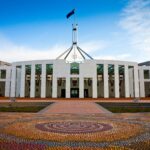Medically reviewed by
What is loneliness?
Loneliness is a negative distressing feeling you get when your current relationships with others are not meeting your social needs.
If you feel lonely, it’s a signal that you need to make a meaningful social connection with one or more people.
Loneliness is more about the quality of your relationships with others than it is about the number of people you know or the number of friends you have.
Loneliness is a personal feeling of social isolation.
What is social isolation?
Social isolation is when you have minimal contact with others. You can be socially isolated but not feel lonely. You can feel lonely but not be socially isolated.
How common are loneliness and social isolation?
Most people will experience feelings of loneliness at some point in their lives.
One in four Australian adults have problematic levels of loneliness.
Loneliness is particularly common among younger (18-34 years) and middle aged men (35-49 years).
Men who live alone, who are dealing with high stresses and mental health pressures, those who have a chronic disease, or live with a disability are the most likely to be lonely.
One in four Australians aged 15 years or older experience social isolation over the course of a year.
Signs and symptoms
Loneliness is a negative feeling that can be experienced in different ways by different people.
People who feel lonely often report that people misunderstand them, that they have no one to talk to or turn to, even when they are around others.
There are ways to measure loneliness, which can be as simple as answering the question, “how often do you feel lonely?”
Social isolation is related to the number of connections you have with others.
Signs of social isolation include: deep boredom; losing interest in others, withdrawing from others; not taking care of yourself, your home or your possessions.
Subscribe to our newsletter

What causes loneliness and social isolation?
The causes of loneliness and social isolation are different for everyone because everyone’s circumstances and vulnerability are different.
Loneliness is higher than normal in people with disabilities.
How are loneliness and social isolation managed?
What do loneliness and social isolation mean for my health?
Loneliness and social isolation are both bad for your health, and increase the risk of early death.
Loneliness and social isolation are also associated with worse outcomes of disease.
What should I do about loneliness and social isolation?
We do not always know what works to help people who feel lonely or who are socially isolated because people have different social needs, resources, and circumstances.
Help for people who are lonely or socially isolated needs to be tailored specifically to each individual because everyone’s experience of the problems is different.
If you are lonely or socially isolated, reach out to someone for help.
You could talk to a counsellor, either by phone or in person, to work on some steps to build social connections.
Make an appointment to see your doctor, so they know about your loneliness and to see if your health is affected.
For some people, health problems can be the reason for loneliness or social isolation, so managing your health problems can help.












